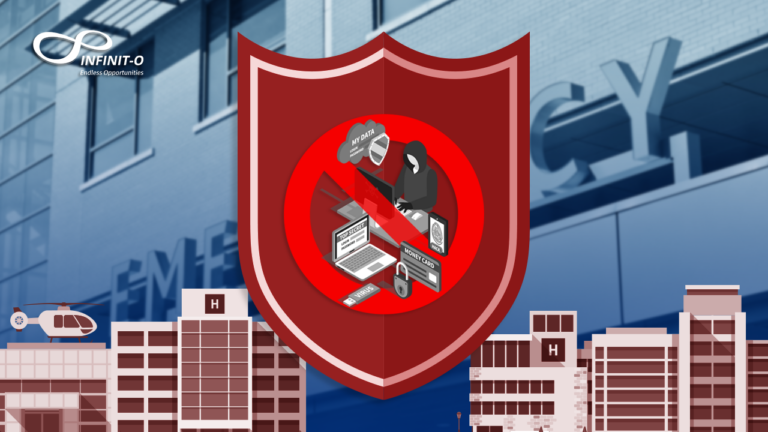Healthcare Business Stability: Expectations Vs. Reality
Organizations that are in the business of providing medical services, medical insurance, medical equipment, and drugs are usually considered profitable and stable. However, like all other businesses, they too have a unique set of challenges inundating them at every step towards viability.
Success for them means ensuring efficient financial management so that they have enough to carry out everyday activities without looking towards creditors for an injection of cash. They must also have the means to replace or add expensive equipment to their repertoire depending on the needs of their processes.
However, despite these similarities, they differ significantly from other industries in several aspects. For starters, in the healthcare industry, the person who buys the service is not necessarily the one who pays for it. Instead, they often work with insurance companies and government programs to set prices and extract payments for services and products provided.
This mandates the need for timely market dislocation and comprehensive record-keeping solutions to keep the medical industry in business.
What Threatens The Stability Of Healthcare Businesses?
Environmental changes and dynamic government policies are often the biggest influencers for businesses in this niche.
At the same time, the structure of modern healthcare businesses is based on technology and procedures that don’t lend themselves well to relationship building with the end-consumer. As a result, professionals in this niche don’t have the time to support the inquiry, reflection, and communication needed for health promotion and disease prevention.
Additionally, virtually all states are legally responsible for monitoring the quality of services provided across public and private sectors. Unfortunately, this results in regulations that increase the costs for healthcare businesses and create high-profile troubles that lead to stagnancy in the healthcare delivery system across the nation.
Similarly, disease outbreaks like the coronavirus pandemic affect all businesses, but the healthcare sector faces the brunt of the impact. So, in times like this, how does a healthcare business sustain itself?
Exploring The Sustainability Of Healthcare Businesses During The Pandemic
As healthcare organizations prepared for a surge of hospitalized patients in the wake of COVID-19, they couldn’t have predicted the extent of the damage it was about to cause for their businesses.
They had to spend more on hiring a backup workforce, obtain protective equipment, set up negative pressure rooms, and amp up the production of essential equipment and drugs. At the same time, social distancing practices made it almost impossible to work at full capacity as many elective procedures and surgeries were altogether canceled.
Here’s what entailed:
The Unprecedented Numbers
Expectation
The first case of Coronavirus was found in 2019, and it was expected that it would turn into a pandemic. Researchers believed that it could overwhelm hospital and intensive care unit capacities for healthcare providers across the nation.
Reality
The reality turned out to be far scarier as COVID-19 became the third-leading cause of death in 2020. In addition, it led to a $3.3 trillion deficit in the same year, i.e., about 15% of the US GDP.
Financial Solvency Challenged
Expectation
The American Hospital Association estimated a financial impact of $202.6 billion in lost revenue for US healthcare systems.
Reality
The median healthcare provider had 53 days cash-on-hand and 49 days in accounts receivables. But the raging pandemic rendered many of their debtors unable to pay, threatening the financial solvency of businesses that offer care delivery and billable services. Soon, due to lack of economic instability, 1 in 5 rural hospitals was at risk of closure.

Shocking Lack Of Preparedness
Expectation
The US administration was quite confident early on that they were adequately prepared to provide for the protective needs of the healthcare professionals. They sent 18 tons of PPE, gowns, masks, and respirators to China.
Reality
It turns out; things soon got worse at home as healthcare facilities struggled to find personal protective equipment (PPE), sanitizing supplies, toilet paper for their own staff. This deficiency exposed the reality of pandemic preparedness across the country.
Outsourcing – The Saving Grace For Healthcare Businesses
As the effects of the pandemic show, it is difficult for healthcare businesses to maintain their stability. For this reason, many medical companies turn to healthcare outsourcing.
Following are the top reasons to outsource medical billing and more:
Cost Savings
Instead of focusing on monthly salaries, workplace infrastructure, and managing billing software, you can focus on the business at hand. Meanwhile, billing experts know how to manage finances and maintain liquid assets appropriately. In addition, they lead to less overhead costs and faster approvals, improving financial stability.
When you outsource medical billing, you assign financial responsibilities to an experienced third party that can handle billing rejections, file re-bills, and has the latest technology to provide adequate financial assistance.
Compliance With Changing Regulations
Compliance in coding and charting is essential. But you can only adhere to compliance requirements and professional reporting when you have knowledge and expertise in the area.
This is where medical coding outsourcing proves vital. Instead of stressing about following updated compliance guidelines, you can focus on the administrative work and leave the financials to the experts.
Business Maintenance And Growth
By maintaining records and employing strategic practices, a medical billing agency facilitates business growth. This means they provide you with effective billing solutions to increase revenue.
Ultimately, this enables you to purchase the latest equipment, make better hiring decisions and ensure business stability even during times of crisis.
Summing Up
Since healthcare businesses are impacted by various changes in the natural and social environment, they must learn to adapt quickly.
But maintaining financial stability, especially during a crisis like the coronavirus pandemic, is not easy. The problem is exacerbated when medical businesses are tasked with many activities at the same time. It is where healthcare businesses can seek the aid of third parties by outsourcing their medical billing and other functions to experienced professionals.
All these qualities and more can be found with the right outsourcing partner who can provide a customized, high quality healthcare business solutions that can promise for the following:
- Operational excellence
- Build a great healthcare & RCM team specifically designed for your unique needs
- Operational cost savings of up to 70%
- Information and data security
- Sense of security and peace of mind
Partnership with Infinit-O
Infinit-O’s mission is to create endless opportunities for your company to realize its full potential.

We can build you a great, high-performance Revenue Cycle Management team composed of:
Patient Support Services
- Patient Concierge Specialist
- Insurance Verification Specialist
- Collections Specialist
- A/R Specialist
Provider Management Services
- Medical Coders
- Medical Billers
- Claims Processors
- Enrollment Processors
- Denial Management Specialist
Health Analytics and Risk Management Services
- Healthcare Analyst
Others
Start small. Exceed expectations. Think infinitely. Think Infinit-O.







This site is protected by reCAPTCHA and the Google Privacy Policy and Terms of Service apply.